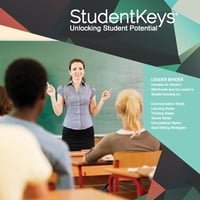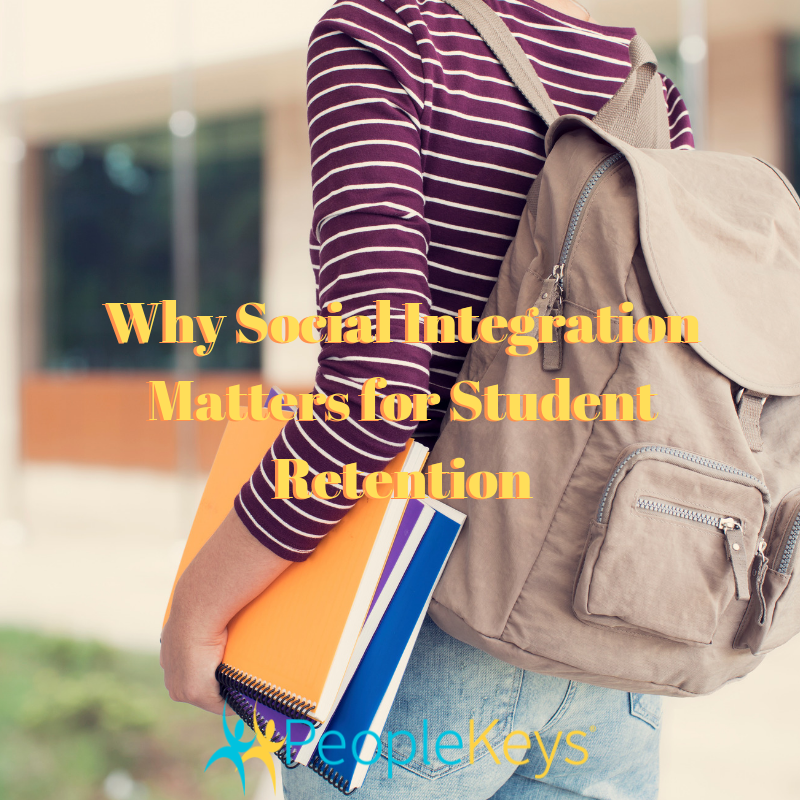
6 Reasons Why StudentKeys Is the Perfect Tool for Your TRiO Program
The goal of the federal TRiO programs is to motivate underprivileged students toward the successful completion of college. For over 15 years, TRiO programs have been using StudentKeys' strength identification to prepare students to not only continue through college, but to target a fulfilling career.
TRiO has become a channel of opportunity for students from disadvantaged backgrounds. From President Lyndon B. Johnson’s War on Poverty in 1964, TRiO has grown to encompass 8 federally-funded programs aimed at motivating and supporting students to pursue and persist through college. Today, there are over 3,000 national programs serving over 800,000 low-income, first-generation, students with disabilities, and veterans. In many programs, you can find StudentKeys materials helping to activate and maximize personal strengths and critical soft skills necessary to be successful in college and beyond.
First used in the late 1990’s, StudentKeys was designed as a college orientation program to get students in tune with themselves and others. Fast forward several years, with many enhancements and applications later, StudentKeys has been found to be an essential tool addressing the mandates of TRiO programs.
Below are the areas in which StudentKeys’ assessment/workbook materials (formerly The Career Quest Program) are helping students to unlock their potential during high-school, all the way through to their college degree and beyond.
1. Strength Identification
Some students, particularly those from disadvantaged backgrounds, need to know what makes them exceptional and what areas of personal strengths they possess. StudentKeys assessments seek to identify areas of personal preferences and strengths, so students can concentrate on those strengths rather than wasting time trying to figure out where they fit. Studies have shown that students who are made aware of their strengths can focus their energies and capitalize on them, instead of wasting their time and efforts trying to discover themselves unnecessarily.
2. Self-Growth
The flip-side to students maximizing their strengths, is the ability for students to discover areas in which their natural personality may be limited so they can grow. Knowing areas of natural limitation can spur students to venture out of their comfort zones and into their growth zones. StudentKeys assessments identify areas of limitation so that students can see new areas of opportunity behaviorally. Ultimately, students who recognize who they are at an early age, can move into their futures with self-confidence.
3. Career Exploration
Since the ultimate goal of a college education is to establish a career, Studentkeys begins assessing student’s soft-skills in high school. Early personality style assessment gives students a springboard to explore career clusters that people with similar personality styles find fulfilling. The notion that a career can be more than something a student “can” do, but naturally “wants” to do, is important to encourage. Students who know more about what makes them happy can gravitate toward subject areas that will not only be self-gratifying, but will promote making quality and realistic life choices while limiting changing majors and job-hopping.
4. Retention
Two major reasons first-year students drop out of college is because they 1) don’t really know what makes them tick 2) have not learned the social skills necessary to transition from a high-school social environment to a more diverse, college social environment. StudentKeys helps students with both of these areas, first to provide knowledge about “self” because knowledge is power. Second, StudentKeys provides the training necessary to help students better understand others and to be better understood to gain rapport with others quickly through learning the international language of DISC.
5. Soft-Skills Enhancement
All schools exist to teach hard skills, but what about critical soft skills like communication skills, conflict resolution, time management, study skills, career exploration, and goal setting? Each person has soft-skill preferences that, once identified, can help students gain valuable insight into themselves and others. Soft skills can be taught and are just as valuable throughout life as hard skills.
6. Transitioning Adults
Anyone who goes through a transition can benefit from StudentKeys. This includes those transitioning from high school to college, from school to work, and from veterans transitioning back to civilian life and pursuing new careers. All of these transitions can be approached methodically for maximum effectiveness. StudentKeys gives people a way to identify, analyze and apply personal soft skills so that they become personal “superpowers”. People who know the best way to learn, think, communicate, and motivate themselves will be more prepared to transition than those who don’t.
 Regardless of whether your program provides academic tutoring, personal counseling, mentoring, career planning or other support resource, StudentKeys has a tool to help your students realize and act upon their potential within the classroom and throughout life.
Regardless of whether your program provides academic tutoring, personal counseling, mentoring, career planning or other support resource, StudentKeys has a tool to help your students realize and act upon their potential within the classroom and throughout life.
In a validity study done at Eastern University, the StudentKeys Program successfully helped retain students from freshman year to sophomore year, as well as increased overall student GPAs...







